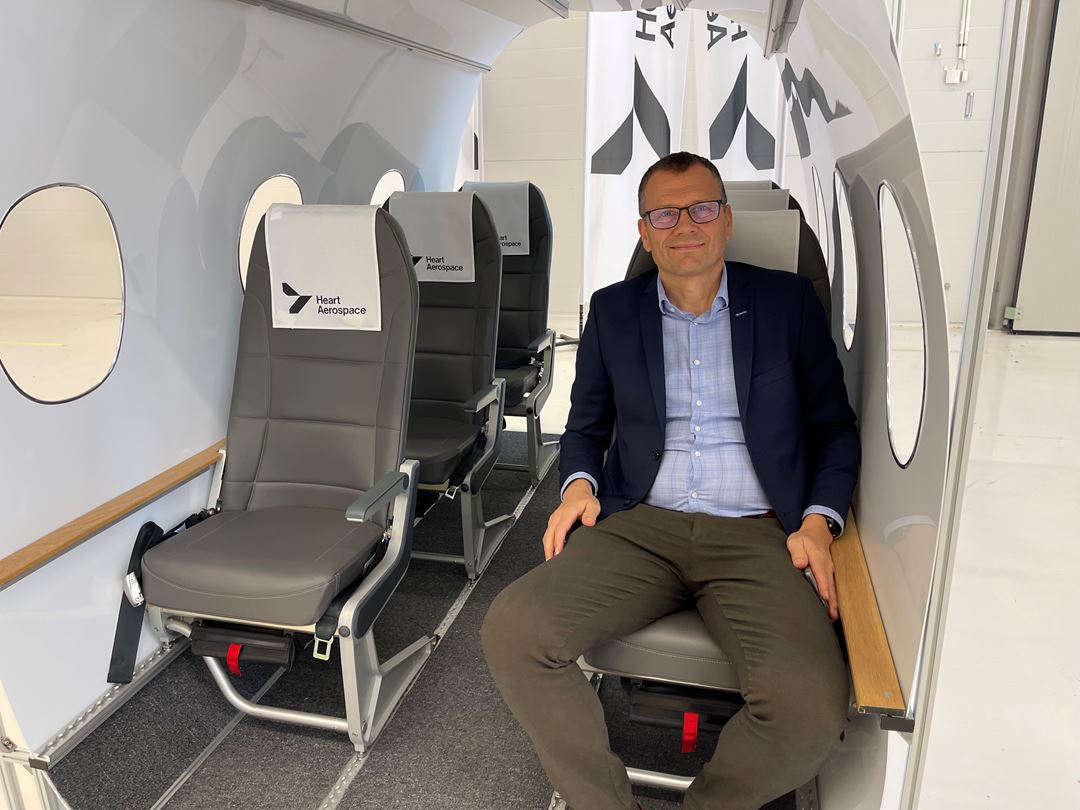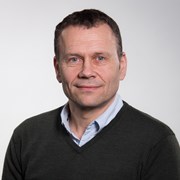"If we are to achieve the climate goals of an emission-free society in 2050 at the same time as we safeguard mobility in Norway, we must do something now. Aviation is probably the most complicated mode of transport to decarbonise, and therefore SINTEF engages, together with industry and public actors nationally and internationally, to contribute to achieving the goals," says Marketing Manager for EU research at SINTEF Digital, Trond Bakken.
This week, SINTEF became a member of the European partnerships SESAR, which stands for Single European Sky Air Traffic Management Research program, and Clean Aviation. While SESAR will contribute to the green shift by streamlining traffic flow so that we do not use unnecessary fuel, Clean Aviation will focus on developing new aircraft types and drivelines in order to be able to switch to fossil-free aviation. Both partnerships are funded by the EU, and leading industries and research communities in Europe participate.
Sets the policy for the green shift
"The partnerships are in the lead for the development of green aviation in Europe. They not only take responsibility for technology development but place everything in a system and set the policy for the green shift. They also ensure that the entire value chain is involved - everything from users to standardization bodies and certification authorities. Participation means that Norway can build competence and technology, and help drive the processes both nationally and internationally," Bakken says.
Through these programs, SINTEF will help to set the research agenda and gain access to the foremost expertise in the EU. At the same time, SINTEF can ensure that Norway's special needs, including the development of zero-emission aircraft that can operate the short-haul network, are covered by EU projects. This is important, as citizens and businesses in Norway are much more dependent on aviation than many other countries in Europe.

A new chapter in modernising European air traffic management
"Even though Norway is very dependent on aviation, we are far too small to be able to implement the green shift in the industry on our own. Cooperation with the EU and European industry is smart and necessary, at the same time as we want some of the value creation within the development of sustainable aviation to also take place in Norway," Bakken says.
When the SESAR partnership was launched this week, it marked a new chapter in modernising European air traffic management (ATM). Bringing together the EU, Eurocontrol, and more than 50 organisations covering the entire aviation value chain, including drones, this new European partnership will invest more than EUR 1.6 billion between now and 2030 to accelerate, through research and innovation (R&I), the delivery of an inclusive, resilient and sustainable Digital European Sky.
SESAR will drive an ambitious programme to make Europe’s aviation infrastructure fit for the digital age, while offering quick wins to contribute towards the sector’s net zero ambitions.
“The aviation sector has to accelerate its transition"
Drawing upon a wide pool of multidisciplinary expertise spanning the length and breadth of Europe, the SESAR partnership will develop and deliver innovative solutions across nine flagship areas of research and innovation, accommodating a diverse array of air traffic, from air taxis and delivery drones to commercial airliners and military aircraft.
Speaking on the occasion of the first meeting of the SESAR 3 JU Governing Board, Director General of Directorate-General for Mobility and Transport (DG MOVE) and Chair of the SESAR 3 JU Governing Board, Henrik Hololei said:
“The aviation sector has to accelerate its transition to a sustainable and digital future. But I have no doubt that working together with this goal in mind, we will make it. Air traffic is recovering steadily following the pandemic, there is a rapid rise in new entrants like drones, and the aviation network is under increasing pressure to reduce emissions and address the issue of lack of scalable capacity. The public-private partnership has shown that it serves as a catalyst to speed up this transition towards a green, climate neutral and digital Europe, and to make our European industry more competitive and more resilient.”


